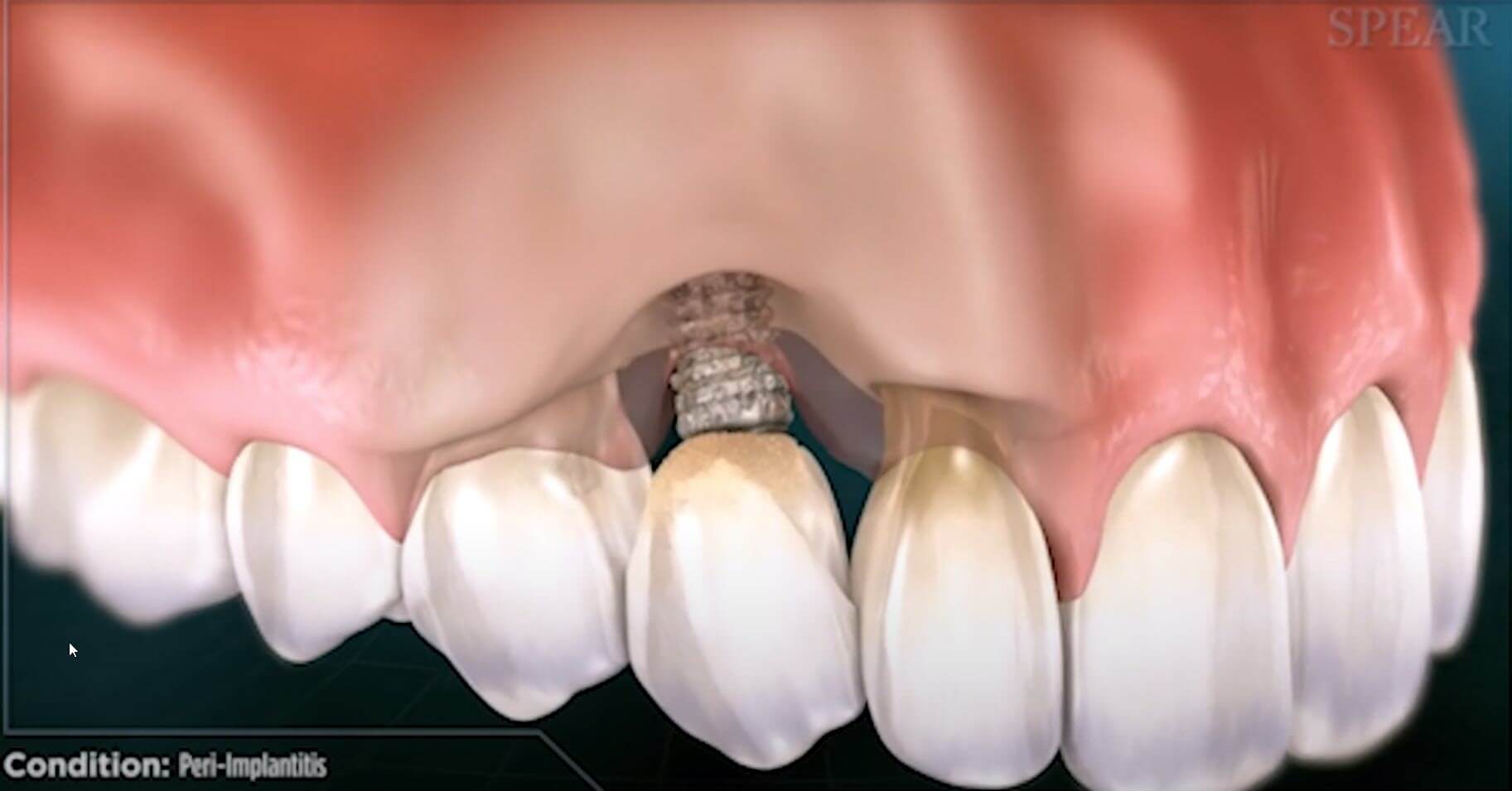Manhattan residents who are missing a tooth or multiple teeth often turn to dental implants to restore their smiles. These prosthetic teeth, which are designed to be permanent, consist of titanium rods that are inserted into the jawbone and act as an artificial tooth root. These rods are then covered with a tooth-looking crown, providing patients in Manhattan with the most realistic-looking and functional tooth replacement option available. Dental implants have over a 90% success rate. However, sometimes dental implants fail, which means they become loose and either fall out on their own or need to be removed by an experienced and skilled Manhattan periodontist, like Dr. Kissel.
What Are the Symptoms of a Loosened Dental Implant?
Just as residents in Manhattan will know if they have a loose natural tooth by the way it moves in their mouth, patients with dental implants will typically know if their implant has become loose. This is because the dental implant will be mobile, either moving side to side, front to back or around. The loosened dental implant may also be painful, which of course, is a very noticeable side effect. If you have a dental implant that is loose or painful, you should see Dr. Kissel for treatment right away. Upon an oral examination and testing, Dr. Kissel may also see that you have jawbone loss around the dental implant, or if your implant loss is due to an infection called peri-implantitis, that you have gingivitis, too.
How Do You Treat a Loosened Dental Implant?
Unfortunately, a loosened dental implant always needs to be removed and replaced. This is because the implant has either failed to make an initial fusion with the jawbone, or an infection or other condition has caused that fusion to come loose. A loosened dental implant will never reattach back to the jawbone. It must come out. If you have a loosened implant, Dr. Kissel will give you a local anesthetic to numb you, provide you with the sedation dentistry option of your choice to maximize your comfort and then remove the dental implant by rotating it counter-clockwise.
What Causes an Implant to Fail, or Loosen?
A dental implant may loosen initially after the dental implant placement surgery, or years later. Causes of initial implant failure include:
- Surgical trauma, which may occur if your dental implants were placed by an inexperienced dental provider;
- Overheating of the osteotomy, which is the cutting of the jawbone;
- A wound that doesn’t heal properly;
- Insufficient implant stability; or
- Initial overload of the dental implant.
If your dental implant fails years after your dental implant surgery, possible causes include:
- Poor oral hygiene;
- Heavy cigarette smoking;
- Uncontrolled diabetes;
- Osteoporosis;
- Osteomalacia;
- A side effect of using certain medications; or
- A bacterial infection called para-implantitis.
What Can I Do to Prevent Implant Failure?
As you can probably guess from the list of causes of a loosened dental implant, there isn’t much you can do to prevent initial implant failure, besides making sure you choose an experienced periodontist for your procedure like Dr. Kissel. You can, however, prevent your dental implants from failing years later by always practicing proper oral hygiene (brushing twice a day, flossing once a day and visiting your dentist for bi-annual cleanings and check-ups every 6 months), not smoking cigarettes, and if you’re a diabetic, following your diabetes treatment plan.
Learning More About Dental Implants
Manhattan periodontist Dr. Kissel understands that his dental patients want to be as informed as possible about the dental implant surgical procedure, recovery time, and potential for implant failure. There is a number of considerations for determining whether or not you are a candidate for dental implants and, if so, what type of dental implants are right for you. The best way for you to receive all the information you need to know about dental implants is to arrange a consultation with periodontist Dr. Kissel. During this consultation, Dr. Kissel will perform the oral examination and tests that determine what type of dental implants you are eligible for, explain the dental implant procedure to you, and answer all your questions. If you’re ready to replace your smile with natural-looking, functional dental implants, then call Dr. Kissel’s office in New York City for a consultation at (212) 702-9088 or book online.
